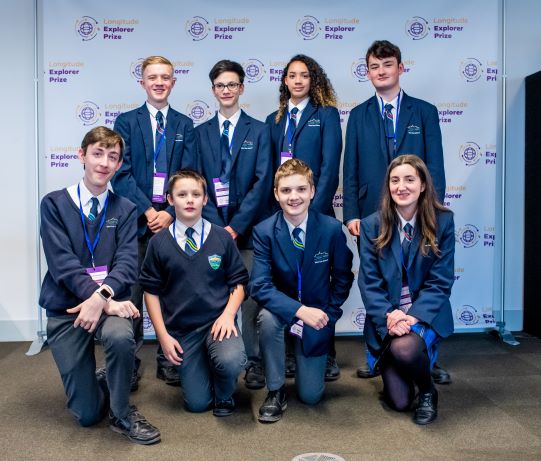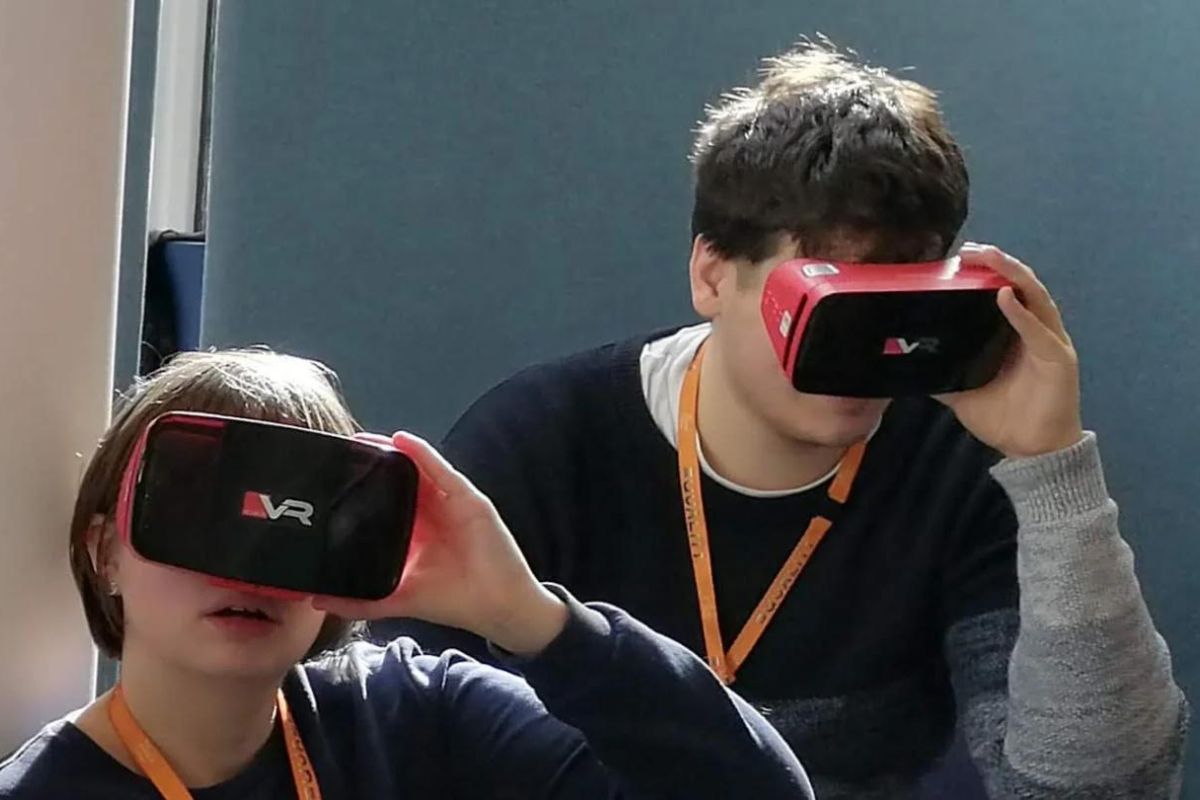ROBOT HELPERS, HEALTH MONITORS AND CLIMATE CHANGE SOLUTIONS IN RUNNING TO WIN £25,000 YOUTH INNOVATION PRIZE

#STEM #AI #EdTech Today (16 Mar) we’re announcing the finalists of a £25,000 national tech prize for 11-16 year olds: The #LongitudeExplorerPrize potential winners include a robot friend for those with autism or anxiety, an app that simplifies text for students with dyslexia, a robot fish to clear plastic pollution, and a device to detect blood clots, the ideas are AMAZING!
The prize, from Nesta Challenges and funded by BEIS, calls on young people aged 11-16 to invent tech solutions to some of the big challenges of our time (such as living healthier lives, climate change, pollution and an ageing population), with the winning team being awarded £25,000 for their school or youth group in July.
More than 800 young people entered game-changing innovations to solve major challenges of our time, including climate change, healthier living, and an ageing population.
An app that simplifies text for students with dyslexia and learning difficulties and a robot friend for those with anxiety and autism are just two of the final ideas in the running to win the £25,000 Longitude Explorer Prize.
The prize calls on the UK’s young people to put their ingenuity and entrepreneurial spirit to the test and use technology – such as artificial intelligence (AI) – for social good. They have been challenged to create and develop solutions to some of the world’s biggest issues, including climate change, living healthier lives, and an ageing population.
Other game-changing ideas hoping to win include a robot fish that collects plastic from oceans and a t-shirt that detects heart problems, as well as a bin that automatically sorts rubbish for recyclables and an AI system to monitor and reduce traffic in busy city centres.
The 40 teams will now compete to win the £25,000 prize for their school or youth group. They will receive resources and expert mentoring to develop their concept ahead of a Dragons’ Den style pitch in July to win the Longitude Explorer Prize 2020. Three runner-up teams will each also receive £10,000.
Science Minister Amanda Solloway said:
“It is incredible to see how these young finalists have thought up innovations to tackle global challenges, from devices that detect health problems to robots which can remove plastic waste from our seas. Technological innovation is important to grow the UK economy and we are supporting young people to pursue careers in this area through schemes like the Longitude Explorer Prize.”
The Longitude Explorer Prize from Nesta Challenges, in partnership with BEIS, supports young people to learn creatively about STEM (science, technology, engineering and maths) whilst honing important entrepreneurial life-skills that do not usually get taught in the classroom.
The prize encouraged entries from young people from across the whole of the United Kingdom, and from all different backgrounds.
With the gender-divide in the STEM industries heavily skewed towards men and only 21% of patent applications featuring a named woman, the Longitude Explorer Prize has worked hard to promote STEM as an exciting career path for all genders. Impressively, girls account for more than half (55%) of all of the applicants to the Longitude Explorer Prize this year.
Constance Agyeman, Head of International Development and Communities, Nesta Challenges said:
“It is abundantly clear that our young people are passionate about the great challenges of our time and have the capacity, creativity and power of thought to make the world a better place. The significant emphasis on STEM education in recent years is hugely positive. Now we need to supercharge those talents by embedding entrepreneurial skills in the classroom too. We want to empower young people to not only have bold and brave ideas, but to take that next step, and make them a reality so they can transform the world for the better.”
In September 2019, teams from schools and youth groups were invited to enter their innovative ideas to the Longitude Explorer Prize. 60 semi-finalists were selected and Nesta Challenges also created 10 new places in the final inspired by the high volume and quality of the original entrants.
The 40 finalist teams (30 from the original semi-finalist cohort and 10 finalists from the latest round of entries) will now be mentored and supported to develop their ideas, produce designs and prototypes and prepare their pitches for the finals in July. These include:
- ClassBot – a device for young people who cannot attend school, perhaps because of a disability or a condition which means they are unable to leave the house. The robot designed by young people at Titus Salt School (Baildon, West Yorkshire) helps their compatriots participate in lessons remotely from home, whilst a robot avatar in the classroom reflects the facial expressions of the student to help the teacher understand whether they’re connecting with the lesson, understand the subject and concentrating on their work.
- Loneliness Buddy – a smart device to help people who are isolated in their own home. The AI learns about their interests and is able to hold conversation to help people feel less lonely. The team from Wilmslow High School (Wilmslow, Cheshire) goes one step further, alerting people with the same interests and connecting them so that they can meet over the device, and speak to one another directly.
- MedBot – A delivery robot designed by teenagers from West Exe School (Exeter, Devon) to distribute prescriptions and medical necessities to the front doors of people who cannot leave the house, with the contents only accessible using biometric/fingerprint technology to ensure the right medicine is distributed to the right person.
- Bacteriophage Production Technologies (BPT) – with so much understandable focus on the harm viruses can bring, a team from Sutton Grammar School (Sutton, London) is developing an AI which can engineer viruses to work for our benefit so that they attack harmful bacteria as an alternative to antibiotics and, in turn, save lives. A bacteriophage is a targeted virus which behaves like a parasite in harmful bacteria by infecting it and reproducing inside it – effectively eating the harmful bacteria from the inside. It uses an AI to generate its own DNA designs and can adapt to different bacteria and their mutations.












Responses